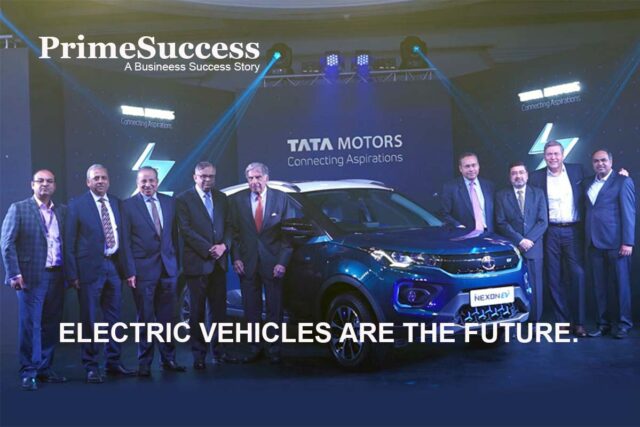ELECTRIC VEHICLES ARE THE FUTURE.
In the latter half of the 20th and the beginning of the 21st centuries, increasing interest in electric transportation infrastructure was sparked by the negative environmental effects of the petroleum-based transportation infrastructure and the concern of the oil price peak. Electric cars differ from those fuelled by fossil fuels in that the electricity they use may be produced from a variety of resources, including fossil fuels, nuclear power, renewable energy sources like solar and wind power, or any combination of those. The kind of fuel and technology utilized for electric generation affect the carbon footprint and other emissions of electric cars. A battery or flywheel in the car might be used to store the electricity. automobiles powered by internal combustion engines. usually only rely on one or a small number of energy sources, often non-renewable fossil fuels. Regenerative braking, which converts kinetic energy—often wasted during frictional braking as heat—into electricity that is then reincorporated into the onboard battery, is a fundamental benefit of electric cars.
What is Electric Vehicle
A vehicle that runs on electricity instead of an internal combustion engine, which produces power by burning fuel and gases, is referred to as an electric vehicle (EV). As a result, this type of vehicle is considered a potential replacement for the present generation of cars to solve issues such as growing pollution, global warming, the depletion of natural resources, etc. Even though electric vehicles have been a concept for a while, they have recently attracted a lot of attention due to the growing carbon footprint and other environmental effects of fuel-powered vehicles.
Need of Electric Vehicle
There is an urgent need for the usage of electric cars for the reasons listed below To:
- Decrease pollution;
- Preserve non-renewable natural resources
- To meet the rising need for additional transportation options
- Reduce imports of gasoline and diesel
- Encourage the use of renewable energy sources
- combat global warming
Advantages of Electric Vehicles
Eco-friendly: Because gasoline is not used in electric cars, there are no emissions or gas exhaust. Driving an electric automobile can assist promote environmental sustainability because fossil fuel-powered cars contribute greatly to the build-up of dangerous gases in the atmosphere.
Renewable energy source: While traditional cars run on the burning of fossil fuels, which depletes the world’s reserves of those resources, electric cars are powered by renewable energy.
Less noise and improved motion: Driving an electric automobile is much more comfortable. They are quieter and make less noise since there are no parts that move quickly.
Cost-effective: Electricity is far less expensive than fuels such as gasoline and diesel, which are subject to regular price increases. When solar electricity is utilized at home, battery recharging is cost-effective.
Low maintenance: Because electric cars have fewer moving components, wear and tear is reduced when compared to traditional auto parts. Repairs are also simpler and less expensive than combustion engines.
Government support: Governments throughout the world have granted tax breaks to encourage people to drive electric vehicles as part of a green program.
The disadvantage of Electric vehicle
High initial cost: Electric vehicles continue to be quite expensive, and many buyers believe they are not as inexpensive as traditional automobiles.
Charging station limitations: People who need to travel long distances are concerned about finding adequate charging stations in the middle of their journey, which are not always accessible.
Recharging takes time: Unlike conventional automobiles, which require only a few minutes to replenish their gas tanks, charging an electric vehicle takes many hours.
Limited options: Currently, there aren’t many electric car models to pick from in terms of appearance, style, or customized variations.
Less driving range: When compared to conventional automobiles, electric vehicles have a shorter driving range. Electric cars can be convenient for short-distance travel but are inconvenient for long-distance travel.
Conclusion
Given the rising levels of greenhouse gases in the atmosphere, the advancements made in the electric car sector in recent years are not only warmly appreciated but also crucial. The advantages of electric cars outweigh the expenses, as shown in the areas of this website dedicated to economic, social, and environmental analyses. Since gasoline and the cars that run on it are more readily available, practical, and less expensive, the cost is the main barrier to the broad adoption of electric-powered transportation. As shown in our timeline, we anticipate that developments in technology and alterations in government regulations will make the switch from conventional fuel-powered cars easier over the course of the following ten years. Our objective is that via mass marketing and environmental education initiatives, people would feel empowered and encouraged to drive an electric car because the realization and success of this business strongly depend on the world’s population. Go electric and contribute to changing the world since every person has the power to do so!










